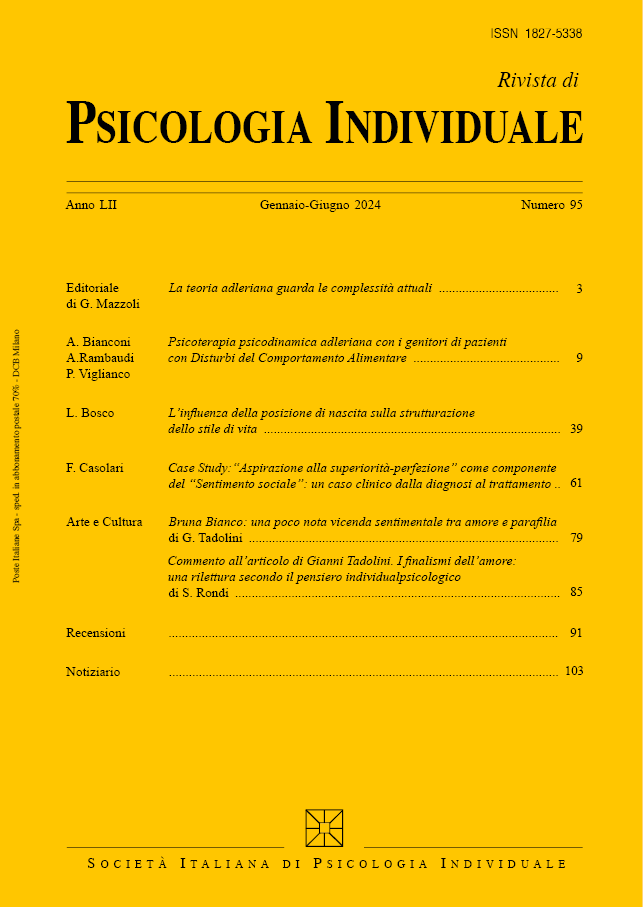PSYCHOTHERAPY PROCESSES AND OUTCOMES: THE ROLE OF THERAPEUTIC RELATIONSHIP
Keywords:
attitude and counter-attitude, therapist personality, patient personality, patient, therapist, personalityAbstract
The dynamics occurring during the sessions of psychotherapy between patient and therapist has been recently described in terms of attitudes and counter-attitudes, starting from therapist’s task to provide presence and encouragement and patient’s requests that feelings of helplessness can be alleviated.
Interindividual dynamics between therapist’s therapeutic style and patient’s life style deal with three orders of factors: the qualities of both therapist and patient as real persons, the unconscious symbolic meanings of the relationship and the implicit communication components. Therapist personality is relevant as it is manifested and perceived by patients during the treatment. Concerning patients, current research not only stresses the relevance of symptoms in building a good working alliance, but emphasizes other variables, such as relational functioning and defence mechanisms. Comprehensively, specific patients personality characteristics tend to evoke distinct patterns of emotional response in clinicians. A review of the results of most recent studies comparing different psychotherapeutic styles and different patient’s life styles is provided, in order to detect their impact on treatments process and outcome. Finally, some implications on therapeutic technique of Adlerian Psychodynamic Psychotherapies are briefly discussed






